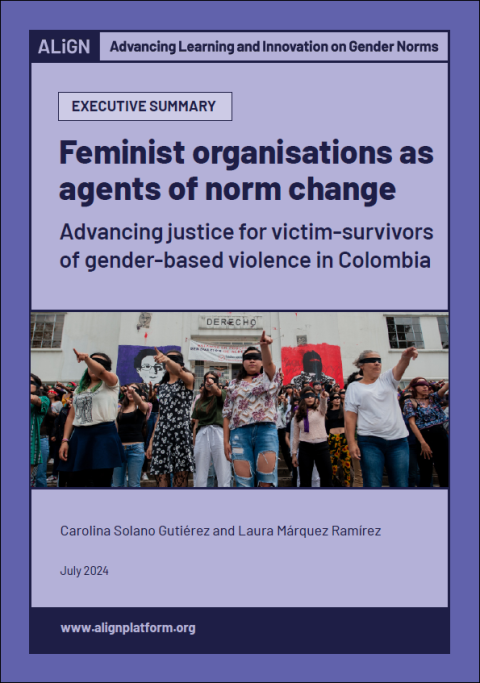- Journal article
- 8 Agosto 2022
The fluidity of patriarchy: kinship, tradition and the prevention of gendered violence in Lugbaraland, Uganda
- Author: Jeroen Lorist, Mercy T. Mbabazi, Eileen Moyer
- Published by: African Studies
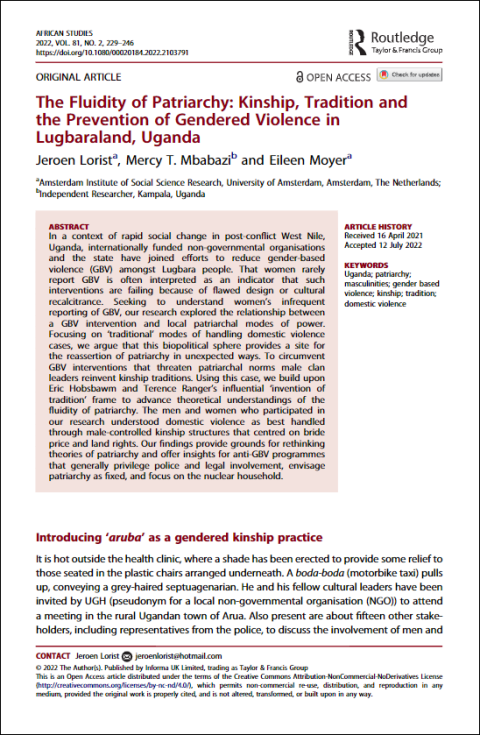
Abstract
In a context of rapid social change in post-conflict West Nile, Uganda, internationally funded non-governmental organisations and the state have joined efforts to reduce gender-based violence (GBV) amongst Lugbara people. That women rarely report GBV is often interpreted as an indicator that such interventions are failing because of flawed design or cultural recalcitrance. Seeking to understand women’s infrequent reporting of GBV, this research explores the relationship between a GBV intervention and local patriarchal modes of power. Focusing on ‘traditional’ modes of handling domestic violence cases, it argues that this biopolitical sphere provides a site for the reassertion of patriarchy in unexpected ways. To circumvent GBV interventions that threaten patriarchal norms male clan leaders reinvent kinship traditions. Using this case, the research builds upon Eric Hobsbawm and Terence Ranger’s influential ‘invention of tradition’ frame to advance theoretical understandings of the fluidity of patriarchy. The men and women who participated in this research understood domestic violence as best handled through male-controlled kinship structures that centred on bride price and land rights. The findings provide grounds for rethinking theories of patriarchy and offer insights for anti-GBV programmes that generally privilege police and legal involvement, envisage patriarchy as fixed, and focus on the nuclear household.
- Countries / Regions:
- Uganda
Related resources
Blog
14 Abril 2025
Published by: ALIGN

Report
5 Marzo 2025
Published by: ALIGN

Blog
10 Febrero 2025
Published by: ALIGN

Blog
19 Diciembre 2024
Published by: ALIGN

Blog
5 Diciembre 2024
Published by: ALIGN
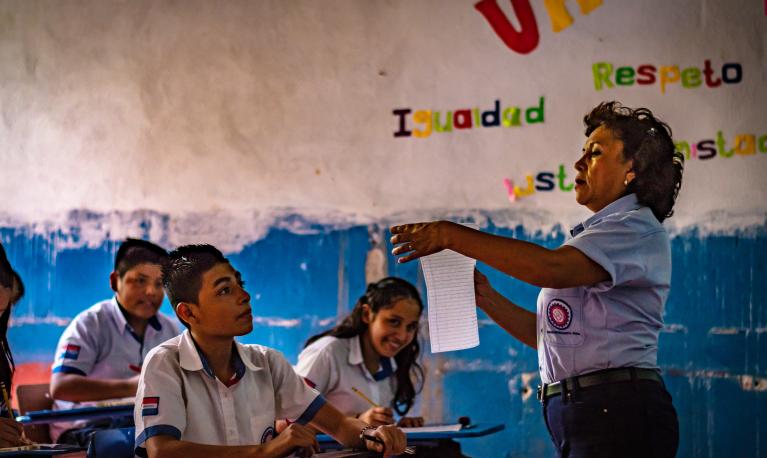
Report
19 Noviembre 2024
Published by: ALIGN, Mexfam
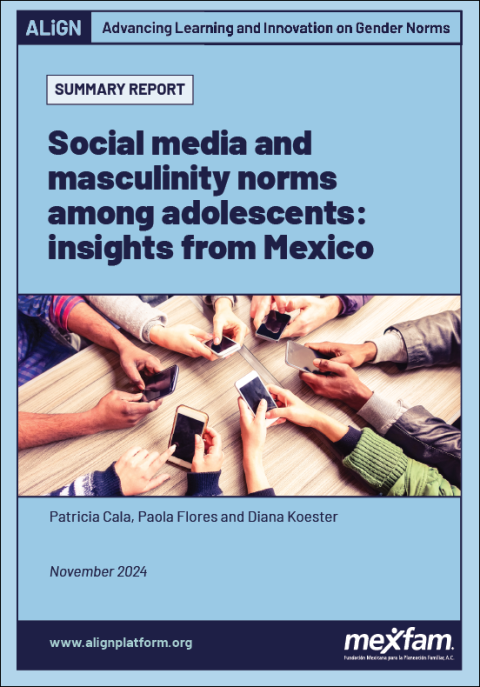
Report
13 Noviembre 2024
Published by: ALIGN

Report
21 Octubre 2024
Published by: ALIGN
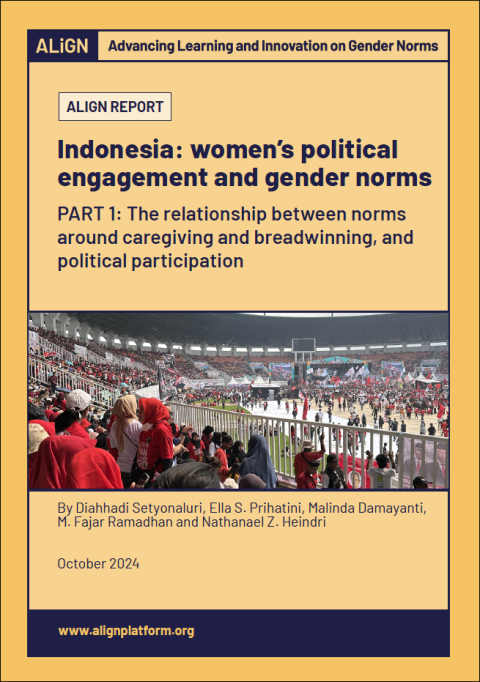
Blog
14 Octubre 2024
Published by: ALIGN

Blog
3 Octubre 2024
Published by: ALIGN
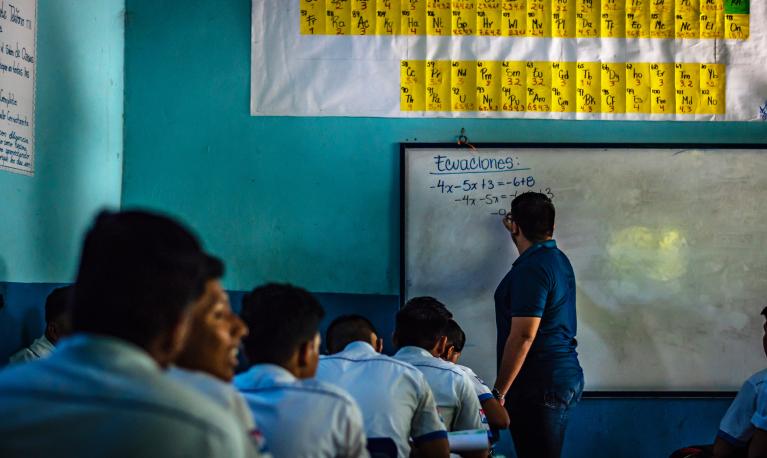
Report
30 Septiembre 2024
Published by: ALIGN, Frente Nacional para la Sororidad

Report
4 Septiembre 2024
Published by: ALIGN, SISMA Mujer
